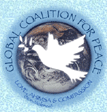 |
 |
 |
A NEW ECONOMIC PARADIGM FOR A CULTURE OF PEACE
 |
 |
 |
 |
 |
 |
|
TURIN, Italy -- Eighty percent of the automobiles made in Italy are manufactured in this bustling northern Piedmont city. Home of the Fiat Group, workers here build Fiat, Lancia, and Alfa Romeo cars, as well as Iveco trucks.
Turin is also the home of the International Training Centre (ITC), an arm of the UN's International Labour Organization (ILO). The ITC seeks to "assemble, package and deliver the best thinking, practice, and experience -- at global level -- concerning issues related to the world of work."

Over the last few years, a major concern at the Centre, as well as of workers and industrialists in Turin -- and, indeed, in Europe as a whole -- has been how to "restructure" businesses in a way that causes the least harm to owners, employees, and communities.
Restructuring often means laying off workers in the search for greater efficiency. Global competition has put pressure on companies like Fiat to improve productivity and profits. Late last year, for example, Fiat proposed laying off some 8,100 workers in just such a restructuring plan, a move that was met with strikes and protests here.
In the search for answers, the ILO has chosen to collaborate with the European Bahá'í Business Forum (EBBF), a private voluntary association that promotes, among other things, the application of spiritual principles to economic problems.
Since 2000, the EBBF and the ILO have produced a joint paper and sponsored a series of workshops, all on the topic of "socially responsible enterprise restructuring." Many of the workshops have been held at the ILO Centre in Turin, and many have featured the participation of the EBBF's Secretary-General, George Starcher.
According to Mr. Starcher, who is one of the principal authors of the joint paper, companies need not resort first to layoffs in hard times. "There are ways to restructure without reducing personnel, and, even if you eventually have to lay off people, there are ways to do it that minimize the effect on people and the communities in which they work and live," said Mr. Starcher.
That insights into economic problems would emerge from a faith-based group may seem odd, but a number of secular organizations have recently begun to work with the EBBF, in large part because of its distinctive orientation. In addition to the ILO, the European Commission and AIESEC, the world's largest student-run non-governmental organization, have participated in collaborative efforts with the EBBF.
"Whether you call it religious or spiritual or whatever, I think that ethical issues are coming to the forefront in a whole range of different areas," said Michael Henriques, Director of the Job Creation and Enterprise Development Department at the ILO. "It's an idea whose time has come."
Others agree that business, industry, and related organizations are increasingly recognizing the importance of ethics and values -- a trend that has opened the door to organizations like the EBBF.
The wake of scandal
"This need is more pressing than ever, in the wake of the Enron scandal, the Argentinian economic collapse, stock market deflation, and the general divorce of business from ethics," said Marcello Palazzi, head of the Progressio Foundation, a Dutch-based, non-profit group that focuses on strategic public-private partnerships.
The EBBF "meets the need of business leaders from different faiths to connect, learn, be inspired, and create joint initiatives," said Mr. Palazzi, who himself joined the EBBF in 1996. "[EBBF's] professionalism, integrity, good management, and networking capacity have created a unique community of committed business leaders."
Founded in 1990 by a group of Bahá'í businesspeople, the EBBF today has a membership of more than 300 men and women in some 50 countries. Registered as a non-profit organization and open to individuals from all religious backgrounds, the Forum's overall mission is to promote ethical values, personal virtues, and moral leadership in business and organizations of social change.
"Our whole mission," said Mr. Starcher, "is one of trying to make some contribution to the prosperity of humankind through promoting values in business."
Those values, in addition to business ethics and social responsibility, include "stewardship of the earth's resources," "partnership of women and men in all fields of endeavor," and "non-adversarial decision-making through consultation." Although these principles -- which are all based on the Bahá'í teachings -- are not always considered within the domain of businesses, EBBF members believe they are "fundamental to achieving a responsible business community," said Mr. Starcher.

The collaboration began in April 2000, with the publication of a 120-page joint ILO/EBBF working paper on the topic. Among other things, it discusses a number of alternatives to layoffs. It suggests, for example, that changes in overall strategy and/or ownership may be more fruitful than downsizing, and that greater efficiency may be found through better use of information technology, improved purchasing and logistics practices, and better labor-management cooperation.
The paper also argues, in terms businesspeople understand, for the importance of treating employees as a valuable resource. "[H]uman and social capital are becoming all-important in the post-industrial economy," states the paper. "Human capital includes intelligence, values, technical knowledge, experience, creativity, network of contacts, corporate memory, as well as professional skills and experience."
The paper has been translated into several languages and has been the centerpiece of workshops on socially responsible enterprise restructuring at the ILO training center in Turin and elsewhere.
In November 2001, nine members of Russia's Parliament were among the eighteen participants at a conference on SRER at the Turin Centre. Other participants included an economist working for the president of Russia and representatives from offices involving social and labor policy in that country.
More recently, training sessions based on the joint paper have included a seminar for Japanese trade union leaders at the ILO Training Centre, and a presentation to a tripartite delegation from Macedonia.
"[The collaboration] has worked well in this particular context," said Mr. Henriques. "I certainly felt there was good synergy between the Business Forum and ourselves."
According to Mr. Starcher, since the term "Socially Responsible Enterprise Restructuring" first appeared in the joint paper, it has increasingly been adopted by other organizations. For example, the ILO received support from the Directorate-General for Employment and Social Affairs of the European Commission in the sponsorship and organization of an international conference on SRER, held in Athens in April 2003.
A comfortable fit
"When EBBF started, hardly anyone was talking about spirituality in the workplace," said Dr. Wendi Momen, chair of the EBBF. "Now it is commonplace; similarly with values and moral leadership. So EBBF is a much more comfortable 'fit' now in the business world."
Another important collaboration has been with AIESEC (Association Internationale
des Etudiants en Sciences Economiques et Commerciales), which is composed
of more than 30,000 business and economics students in 800 universities
and 85 countries.

"It is a relationship based on sharing our values and helping each other in achieving our mission," said Susana Muhamad, an AIESEC alumna, who oversaw the relationship with the EBBF from 2001 to 2002, when she was director of AIESEC International. She added that EBBF's "network of values-based leaders in the corporate sector" makes it an attractive collaborator.
Several EBBF members have played an active role in a series of meetings organized by the European Commission to consult on policy for promoting corporate social responsibility (CSR) in Europe. The EBBF responded with a written memorandum to an initial draft "green paper" on CSR and was invited to participate in three meetings in Brussels presided over by officials of the EC. In addition, EBBF members were among the more than 1,000 people invited to participate in a two-day conference organized by the Belgian Presidency of the European Union on CSR.
"[The EC] had a very positive point of view on the EBBF," said Mr. Starcher, "because we were a network of businesspeople and not just an NGO with a bunch of ideas..."
Representation at high-level international conferences has also raised the profile of the group. Most recently, members sponsored two seminars at the World Summit on Sustainable Development in Johannesburg, in August and September 2002. An EBBF booth at the Summit also provided literature for participants, including a Zulu translation of "Emerging Values for a Global Economy," an EBBF paper.
The EBBF's latest annual conference was highlighted by the participation of such prestigious non-members as the speaker of the Parliament of Namibia, who is also a vice president of the Interparliamentary Forum, which comprises parliamentarians from some 160 nations. Simon Zadek, Chief Executive Officer of AccountAbility, a non-profit professional institute, offered the keynote address on "The Business Case for Social Responsibility."
Another recent development was the creation of a new chair at the University of Bari, Italy: the Chair for a New World Order, to which EBBF member Giuseppe Robiati has been appointed. The creation of the chair reflects the efforts of Mr. Robiati and EBBF to introduce its core values into the curriculum at this and several other universities in Italy.
Indeed, the willingness of the business world to engage in discussions of about values is visible in the increasing participation of businesses and entrepreneurs in conferences such as those sponsored by the Spirit in Business Institute (SiB). The EBBF participated in SiB's world conference in April 2002, which attracted over 500 participants, and will be represented at the upcoming conference in June 2003, to be held in San Francisco, California. The conferences are focused on increasing discussion about improving business practices through ethical and spiritual means.
"As we are coming to understand, spiritual values in leadership are not a passing trend but the integration of a new level of awareness that will enhance community in the workplace," said Barbara Krumsiek, President and CEO of Calvert Group, quoted on the Web site for the Spirit in Business Institute.
To catalyze that transformation, EBBF is bringing a new perspective that stresses personal and ethical virtues in business dealings, which it hopes will invest a greater sense of social responsibility in corporate actions.
"EBBF's work," said Mr. Palazzi, "is about the values and principles which unite [people] from all religions and countries in their practice of business. Good business, like good governance, rests on these values and principles. Without them, there is nothing."
-- By Alex McGee